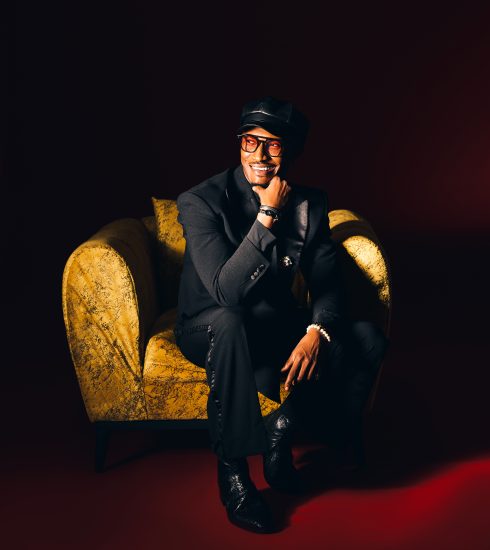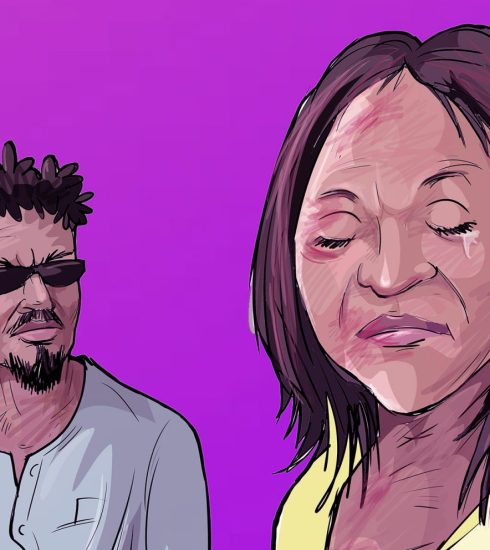Unveiling The Innovations Of Dr. Omolola Salako In Cancer Care
Today, February 4th, 2024, marks World Cancer Day, an international awareness day led by the Union For International Cancer Control (UICC) to raise cancer awareness and, most importantly, encourage its prevention, detection, and treatment.
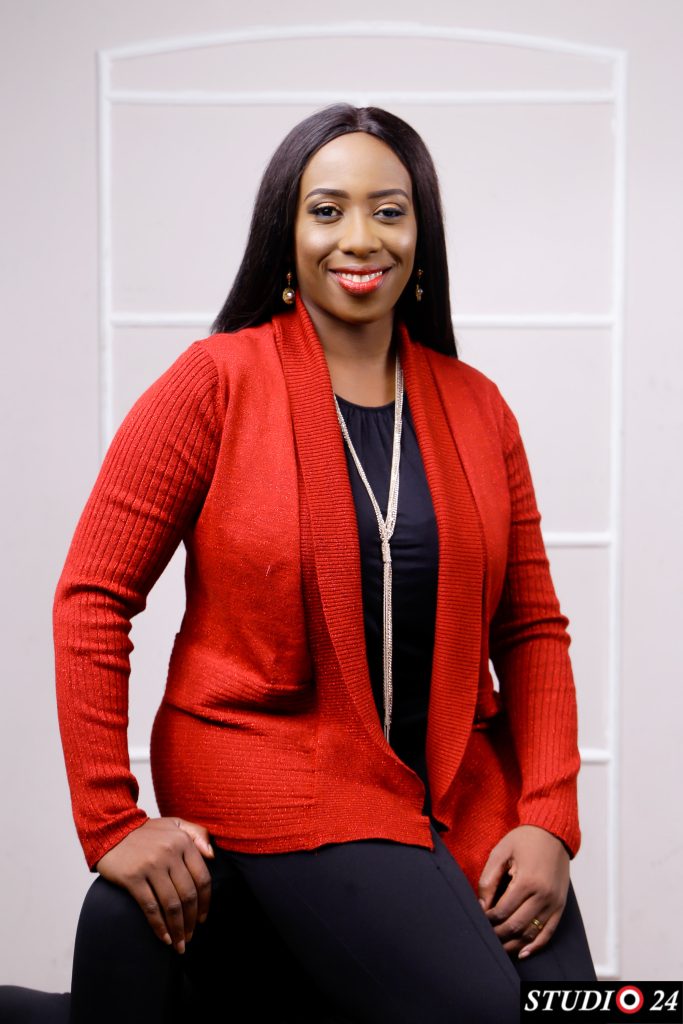 Among other types of cancer, ranging from lung cancer to skin cancer and even to prostate cancer, breast cancer remains the second leading cause of cancer death among women overall. Even though men are not left out in the risk of getting cancer, women are particularly more vulnerable and susceptible to breast cancer, and their risk increases with advanced age.
Among other types of cancer, ranging from lung cancer to skin cancer and even to prostate cancer, breast cancer remains the second leading cause of cancer death among women overall. Even though men are not left out in the risk of getting cancer, women are particularly more vulnerable and susceptible to breast cancer, and their risk increases with advanced age.
As the world recognises World Cancer Day, we can’t help but appreciate individuals, organisations, and advocators committed to putting an end to the rise of cancer in the country and, most importantly, how they are working so hard to make cancer control a national health priority.
Leading this movement is Dr Omolola Salako, she is an “Oncopreneur” who founded Sebeccly Cancer Care, Pearl Oncology Specialist Hospital, The Oncopadi APP, and Prosecare AI, a digital patient monitoring platform in Nigeria. Through her several vibrant start-ups, she has been able to create solutions that have so far increased people’s access to accurate cancer information, treatment, and prevention services. She is one of the 81 Clinical Oncologists in Nigeria skilled in the multidisciplinary management of solid cancers. Dr Omolola Salako is on a mission to help people, especially women, prevent, treat and survive cancer.
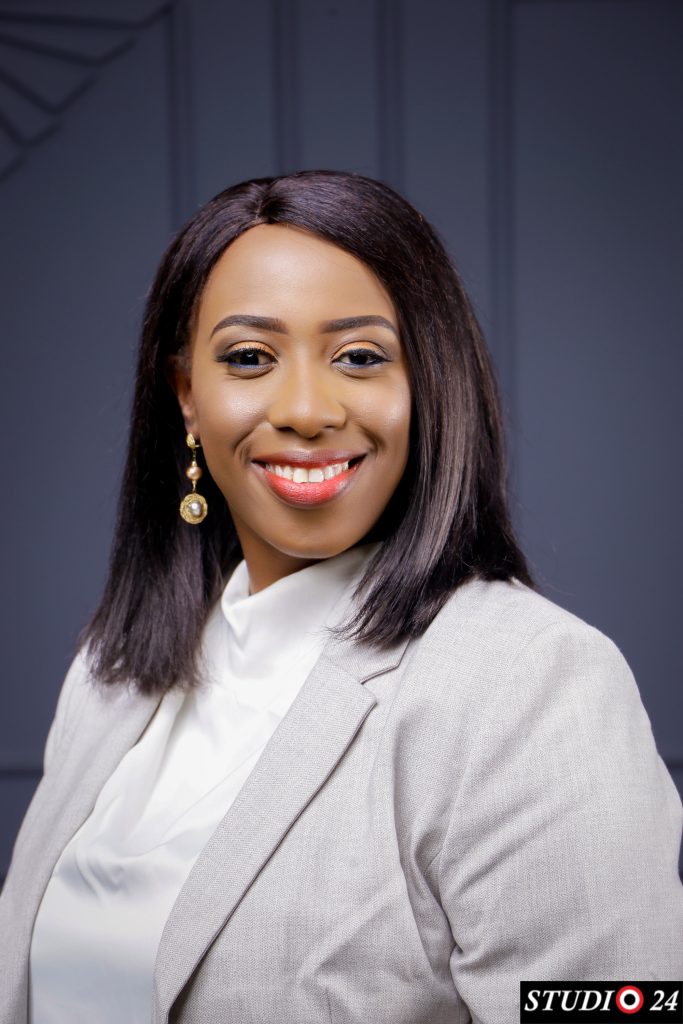 In this interview with THEWILL DOWNTOWN’S DORCAS AKINTOYE, she offers insight into her career path from being an oncologist to owning more than three cancer care organisations in Nigeria. She talks about what triggered her interest in cancer care, the rise of breast cancer and how to control it, her perceptions of the enormous influence that technology has on cancer care, and the intricacies of cancer care in Nigeria, highlighting the development, challenges, and inventive spirit that needs to be adopted to drive the sector ahead.
In this interview with THEWILL DOWNTOWN’S DORCAS AKINTOYE, she offers insight into her career path from being an oncologist to owning more than three cancer care organisations in Nigeria. She talks about what triggered her interest in cancer care, the rise of breast cancer and how to control it, her perceptions of the enormous influence that technology has on cancer care, and the intricacies of cancer care in Nigeria, highlighting the development, challenges, and inventive spirit that needs to be adopted to drive the sector ahead.
What inspired you to become an oncologist, and how did your journey in the field of oncology begin?
The turning point for me occurred in 2003 when my younger sister was diagnosed with terminal cancer. Witnessing her journey through this challenging time was like riding a roller coaster of emotions. Initially diagnosed in Nigeria, she eventually sought treatment abroad, highlighting a stark contrast in the level of care and pain control. As a medical student, it became evident that there was a significant gap in cancer care within Nigeria. The stress, pain and sadness cancer patients and their loved ones go through is a challenge then and now, and I made up my mind my goal to contribute to solving this menace called cancer.
This realisation fueled my determination to contribute to improving the cancer care ecosystem in the country. At that time, there were only about 30 Clinical Oncologists in Nigeria, and today, despite some progress, we still have less than 95 Clinical Oncologists distributed across approximately 18 states in the country.
My inspiration to become an oncologist stemmed from caring for my sister and a desire to enhance the quality of cancer care in Nigeria. I became an Oncologist a decade ago, and I am working hard to reduce patients’ stress, creating innovative solutions such as the Oncopadi app to make a meaningful impact on the lives of individuals facing cancer.
As an Oncoprenuer, what challenges do you face in founding your various cancer care organisations? And how did you overcome them?
Firstly, let me define what an Oncopreneur is. It’s a term I coined to describe a creative individual who confronts problems head-on, swiftly developing and implementing innovative solutions. As Nigerians, many of us are hardwired entrepreneurs, whether genetically or environmentally induced. An oncopreneur is a dynamic entrepreneur who excels in oncology, creating substantial value for the cancer ecosystem while fostering personal and professional growth, all while reaping profitable rewards.
My journey into founding cancer care organisations began in 2006, two years after my sister’s passing, when I established the first venture, an NGO called Sebeccly Cancer Care. The second startup is Oncopadi Technologies, a digital innovation company. The third startup is Pearl Oncology Specialist Hospital. While the process of founding organisations (ideation)has generally been driven by passion and a commitment to solving the myriad cancer care barriers prevalent in Nigeria, the challenges often surface during the implementation and execution of day-to-day operations and sustainability.
Setting up the corporate structure, a positive work culture, recruiting and maintaining a high-performance team aligned with the values, managing multiple stakeholders, standardising the processes, marketing, figuring out the business models and raising funds, whether it be grants or sales of the product or services of are just some of the duties of an oncopreneur, and it gets super demanding. Some of the challenges I’ve faced include difficulties in finding and managing human capital effectively. The second challenge revolves around ensuring the sustainability of the services, ensuring they are consumed and appropriately paid for to ensure continued operation. The third hurdle is navigating the rugged economic landscape in Nigeria, where establishing and running an organisation requires meticulous consideration of every aspect, from purchasing medical supplies in light of inflation to the massive brain drain.
In summary, the passion for addressing issues might drive the founding phase, but you must equip yourself with new knowledge, skills and networks to stay ahead of the risks. As far as I am concerned, there is no challenge that I cannot tackle because I have faith in God, and I seek His counsel to do what I do.
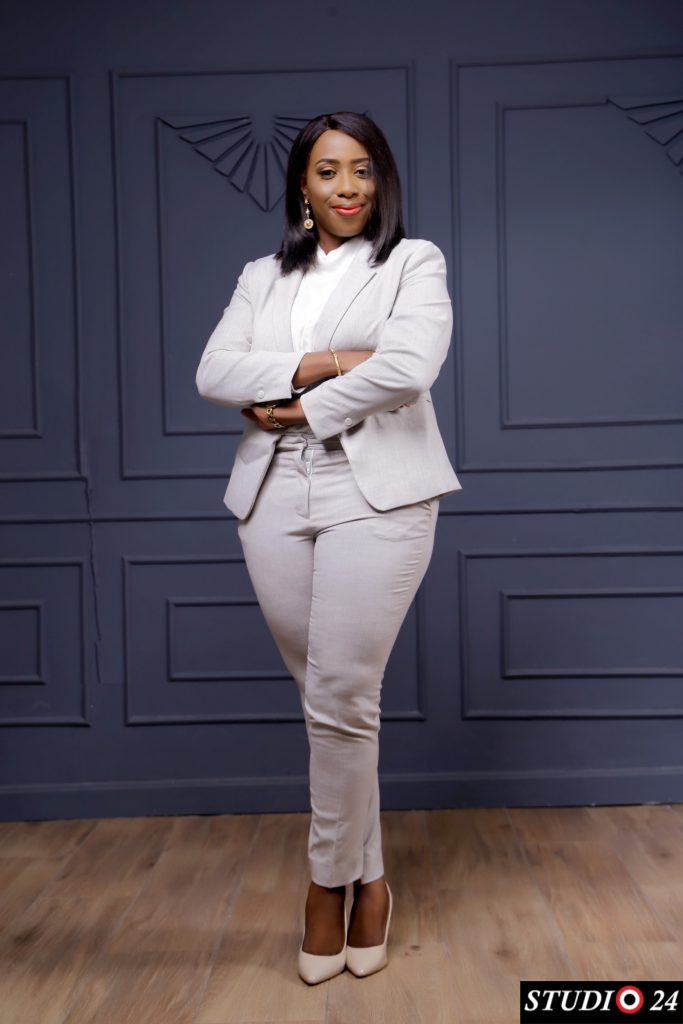 Tell us about the vision of Pearl Oncology Specialist Hospital and how it contributes to cancer treatment in Nigeria.
Tell us about the vision of Pearl Oncology Specialist Hospital and how it contributes to cancer treatment in Nigeria.
Certainly, Peal Oncology’s inception and conceptualisation was as far back as 2006. It’s a divine vision of old that manifested in January 2021 and was rooted in delivering quality cancer care. The vision that had lingered since 2006 took a tangible form with the launch of Peal Oncology Specialist Hospital in January 2021, expanding into a full-fledged hospital by December 2023.
Our vision is to be the preferred choice of humane cancer care and an ally to conquer cancer in Africa. Through our chain of cancer centres, research, education and technology, our mission is to prevent, treat, cure and palliate cancer while advancing calm, clarity and hope in every patient interaction.
At Pearl Oncology, our three-fold priority (PREVENT. TREATMENT. SURVIVORSHIP) reflects our commitment to closing the cancer gap. Firstly, prevention takes precedence, with an emphasis on educating individuals on reducing their risk of developing cancer and promoting healthy habits because 40% of cancers are preventable. Secondly, we prioritise treatment, recognising that early detection significantly increases the potential for a cure. We employ multidisciplinary cancer treatment such as surgery, chemotherapy, and target therapy.
Lastly, our third priority focuses on survivorship, acknowledging that the journey doesn’t end with treatment. We recognise that it can be a lonely and scary journey when dealing with cancer. Our goal is to guide our patients and their loved ones towards finding peace and clarity in the face of cancer. Survivorship at Pearl Oncology goes beyond the physical cancer treatment aspect, recognising the multifaceted nature of a human being. We provide a serene environment, counselling, digital tools, telemedicine consultations, and monthly support group meetings led by wellness and health experts. These meetings cover various topics, including treatment, diet and nutrition, mental health, and coping strategies.
Our commitment is to equip our patients with the tools they need not only to survive but to thrive in the aftermath of cancer diagnosis and treatment. We provide affirmations, navigators, counselling sessions, and support for patients and their relatives, recognising that the journey involves not just the physical battle against cancer but also the mental and emotional aspects. This vision and mission propel Pearl Oncology Specialist Hospital towards making a meaningful impact on cancer survivorship in Nigeria.
Prosecare AI is a digital patient monitoring platform. How does it enhance patient engagement and support in the context of cancer care?
So, Prosecare AI is one of our survivorship tools. It’s an AI digital patient monitoring platform that helps cancer patients track and manage treatment-related side effects. The Proscare app is currently used in the clinical and research setting by hundreds of cancer patients with over 16 cancer types on treatment across Nigeria.
When cancer patients are on treatment like chemotherapy, chemotherapy is given every three weeks or sometimes weekly. When the patient takes the first dose, for example, and they go home a few days after, she may experience side effects such as diarrhoea, vomiting, feeling very tired, and feeling very sick. What PROSE AI does is that it allows patients to report how they feel immediately from the comfort of their homes. I vomited twice. I feel so tired I can’t stand up from bed. At the back end of the PROSE AI app, a team of healthcare professionals monitor and track those side effects and provide clinical advice. This way, our patients are not left alone to self-manage or travel to the hospital to report their side effects. They know they are at home, but they are still connected to their cancer care team.
In reality, thousands of cancer patients are stranded when they have side effects, they can’t reach or connect with their team, and they can’t get clinical advice, so PROSE AI is a digital patient symptom monitoring app that connects the patient and the healthcare team so that the patients feel better or so that the patient’s side effects can be managed. The power of PROSE AI is that it solves the side effects that cancer patients face daily. I would estimate that 60% of cancer patients cannot reach their oncology team or their medical doctors when they need to report a side effect. For example, if the patient has a side effect during the weekend or maybe 7 p.m., most cancer clinics close around 4-5 p.m. Hence, the doctors are no longer there, but PROSE AI provides clinical information and advice on how patients can care for themselves as they experience side effects. The doctors can review these reports and understand what their patients are going through remotely. PROSE AI allows our patients, their caregivers and family members to report their side effects and receive immediate clinical advice.
In your extensive experience, how has the landscape of cancer treatment evolved in Nigeria over the past two decades?
Fortunately, there is some progress, albeit slow in comparison to the rate at which cancer patients are dying. The first area of improvement would be the evolution of the Government cancer centres; in the past, most of our cancer centres were fully government-owned, government invested and managed, but now we have a growing number of PPPs (Public Private Partnerships) that appear to be sustainable and are overcoming the unique challenges of a PPP. Every year, we see more financial institutions, corporations, and high-net-worth individuals investing and spending billions of naira to provide modern radiotherapy facilities in government hospitals and private cancer centres. With over 200 million people, Nigeria should have more than 300 radiotherapy facilities. However, even though the government is setting up and funding new radiotherapy centres, we still need more than the ideal radiotherapy machines in the country.
The second progress is that cancer advocacy has yielded some big wins. Some cancer advocates, NGOs and survivors are hard at work creating awareness and highlighting the wicked problems cancer patients face daily. Under the umbrella of the Nigerian Cancer Society, there is better communication and collaboration between cancer stakeholders. We are still far from maximising the power of united cancer voices. The government is alert to the cancer care needs and recently launched the Nigerian Institute of Cancer Research and Training, tasked with stemming the tide of cancer in the country. And as they roll out and implement their plan, we look forward to better cancer control.
Again, the landscape has evolved with innovative financing for cancer care. The Federal Government launched the catastrophic health fund a few years ago, triggered by cancer advocacy. This fund provides free cancer treatment worth one to two million naira. Some patients have benefitted from this fund, but the larger pool of beneficiaries has yet to be discovered or presented. All stakeholders must remain financially accountable, measure the impact of the scheme and disseminate the findings and lessons of the catastrophic health fund.
There’s also the rise of indigenous technological products built for Nigerian cancer patients and cancer centres. Oncopadi is an example of a digital product serving over 2,000 cancer patients and their loved ones.
Next Wear Technologies also produced a wearable tech-enabled bra that helps women detect breast cancer earlier.
Breast cancer is a significant focus for you. What initiatives or strategies do you believe are essential in raising awareness and promoting early detection?
Breast cancer is a focus because it’s the cancer with the most significant problems. It’s the most common cancer in Nigeria. It is the leading cause of cancer death. At the beginning of this decade, the International Agency for Research on Cancer recorded over 28,000 newly diagnosed breast cancer cases in Nigeria, which represented about a quarter of all newly diagnosed cancer cases. Statistics show that 69.1 in every 100,000 Nigerians will have breast cancer, with a mortality rate of 6.23 per 100,000 persons. According to the World Health Organization, 99% of breast cancer patients are females.
Common fears and challenges faced by these patients include lack of financial resources, poor social support systems, inaccessibility to healthcare services, spirituality, poor patient awareness and education, stigmatisation, etc. Developing countries like Nigeria tend to face these challenges more and must combat poor budgetary allocations for healthcare and poor health insurance schemes for the population.
So, at Sebeccly, Oncopadi, or Pearl, we are focused on solving a few of these problems by promoting cancer prevention and early detection, treatment and survivorship programs. The TimeToScreen Program is a community campaign that provides cancer screening prevention services to corporations, the Women’s Network, etc, so that we can help more people prevent cancer and be aware of the early warning signs. So first of all, all cancer, most especially breast cancer, starts as a very tiny disease, microscopic in nature- we can’t see it, we can’t touch it, we can’t feel it.
Then, it becomes big enough to be detected during medical check-ups. So, some of the initiatives we have and must continue are to conduct community outreach to provide early detection and screening services to women, such as breast and cervical screening services. We also ensure that for women that we screen who have a breast abnormality, like a breast lump, nipple discharge, or breast skin changes, we navigate them through the complex health care system. We ensure that they go to the next step, the second step, the third step, and the fourth step to confirm if the lump they have is cancerous or not. Most times, a woman with a breast lump will present for a clinical assessment, and we would, at the end of the day, discover that the breast lumps are not cancerous. However, it’s essential to get to the end of the assessment: “What is this breast lump? Is it breast cancer or not?”.
Another initiative we have is, if a woman is diagnosed with breast cancer, we take her through the Cancer Coaching Program, where we counsel the woman on the disease, what to expect, what the possible treatment options are, how we’re going to monitor, we focus on wellness and recovery which include mental health, nutrition, finances, relationships, spirituality. Our goal is to address all the dimensions of life.
Then we have the Thank God It’s Friday Breast Clinic. This clinic is held every Friday for our breast cancer patients who require support and financial support. On this day, we provide discounted treatment up to 40% discount. Sebeccly Cancer Care raises funds from various donors, and Pearl Oncology Specialist Hospital provides treatment.
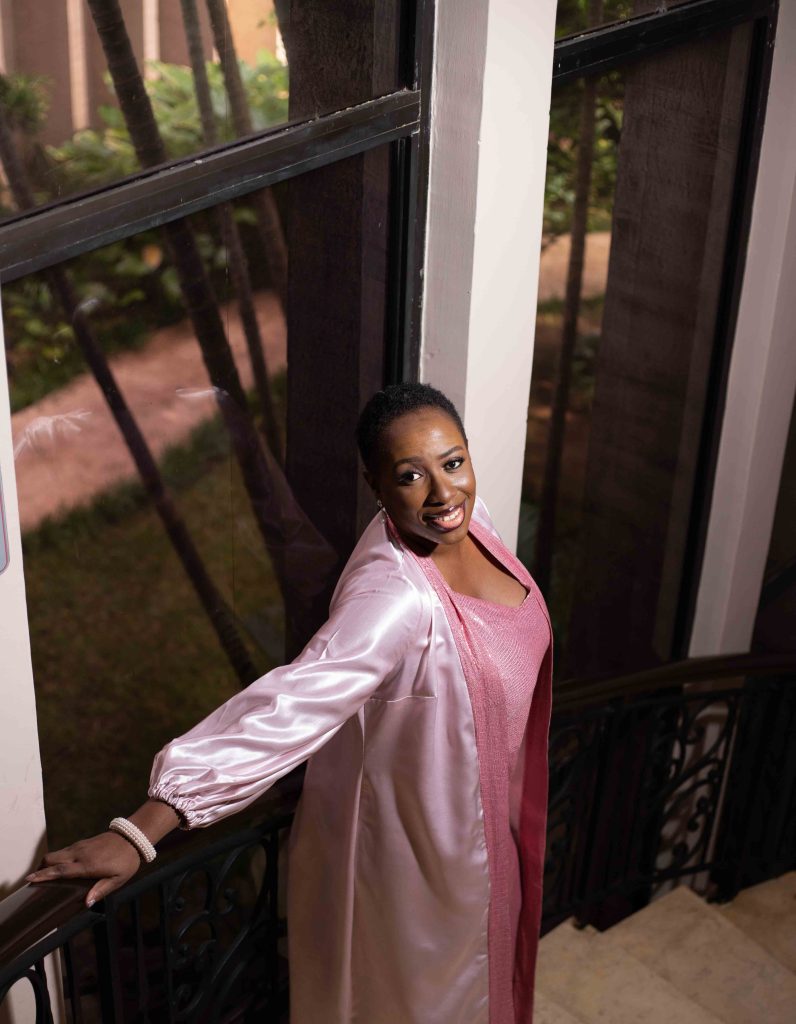 What role do you think public awareness and education play in reducing the stigma associated with cancer in Nigerian society?
What role do you think public awareness and education play in reducing the stigma associated with cancer in Nigerian society?
Public education is crucial. An informed society, an educated society, you know, is a healthy society. Also, in cancer care, what types of cancers are preventable? Some cancers should not occur because we know certain risk factors are causing them. And if people, if the general public, know how to modify these risk factors, they reduce their chances of developing these preventable cancers. A common preventable cancer is cervical cancer. It’s caused by a virus, human papilloma virus. It is transmitted during sex. However, some women, a lot of women, after sex, can clear the virus by themself. The immune system will take care of it and eliminate the virus. But a group of few women in which this virus stays quiet on the cervix, stays there for many, many years, 10 years, 20 years. And 20 years later, it begins to form a rash, which we call (PRECANCER), and then a few years later, it causes full-blown cancer. So, if such a woman had gone for her medical checkup and cancer screening, it wouldn’t have happened. We would detect the precancer stage, treat it and prevent it from becoming full-blown cervical cancer. We would detect it in the rash stage and then treat it. So, when it comes to public awareness, we want to ensure that the general public knows that 40% of cancers are preventable. And this is how to prevent it. This is where you can go for medical screening, check-ups, and vaccination.
It’s also about the daily habits.
Are you drinking up to three litres of water a day?
Do you have enough vegetables and fruits in your diet?
Are you eating too much carbohydrates, sugar,
fat, and oils?
Is your diet balanced?
Are you physically active?
Do you take up to 10,000 steps a day?
How are you managing your stress levels?
Are you constantly stressed?
Do you have any health conditions like diabetes or hypertension?
Is that well-managed?
Have you contracted one of the viruses that are associated with some cancers? HIV, for example. If someone is HIV-positive, they must use their medications religiously because they have a higher risk of developing certain cancers than a non-HIV person, and that means that they have to do certain medical check-ups earlier than a non-HIV person. For example, an HIV-positive woman has to do her cervical cancer screening earlier and more frequently than a non-HIV woman.
Chronic Infection with Human Papilloma Virus causes cervical cancer. The good news is that there’s a vaccination that protects against it, and the federal government has rolled out a massive vaccination campaign to vaccinate more than 7 million girls in Nigeria for free.
How many mommies and daddies are taking their children, their girls, for this vaccination? So public awareness is crucial in helping us educate the public to stay healthy, to go for their medical check-up, and to know where to go when something is wrong with their health. When it is suspected that it is cancer, it will help them to know the right facilities to go to to get treated because there are very few hospitals equipped to treat cancer, which is the situation we see a lot in Nigeria, where cancer patients have been to like five hospitals on this cancer issue. Still, they are not being told or referred to the right cancer centre. So that’s the role of public education. And these days, we can educate the public through social media and dedicated websites that inform the public, and so on.
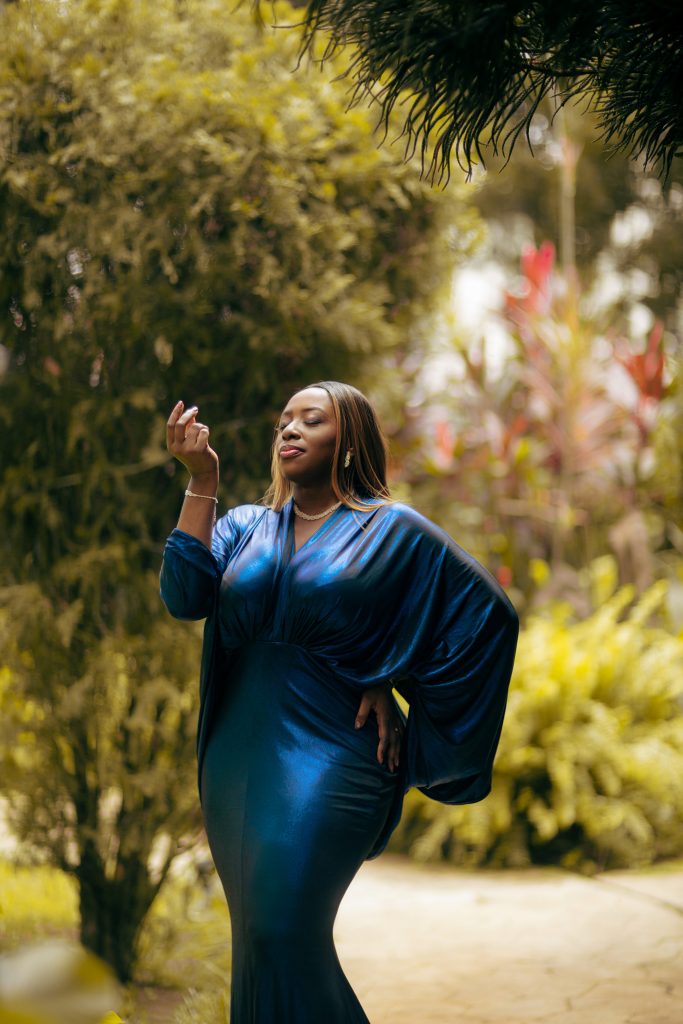 With your vast experience, what changes do you hope to see in Nigeria’s overall healthcare system, especially cancer care?
With your vast experience, what changes do you hope to see in Nigeria’s overall healthcare system, especially cancer care?
So, the first one is the low-hanging fruit. Let’s help the population prevent the 40% of preventable cancers. Let’s roll out a national cancer screening initiative where wherever men and women at a certain age have access to the screening service. We can’t compare ourselves to high-income countries where they say every three years or every once a year, the woman should get screened. If we have limited resources, we can say every once in five years, And in situations where it has to be free, we should have initiatives funding those indigent patients. But what I would like to see in the next two years is a successful national cancer screening service available in the 36 states of Nigeria, which people can access without bureaucracies or stress.
Beyond the professional realm, what hobbies or activities bring balance and joy to your life amidst the demanding nature of your career?
I have a lot of hobbies. I travel. I love music. I don’t know what they call people who know the music lyrics. There’s no song they will sing on my favourite station that I don’t know. If I don’t know the lyrics, I know the tune. I listen to music every day because it makes me happy and gets me more creative. I paint. I draw. I spend time with my family. And, yeah, I have a weird sense of humour. I always find a funny interpretation of random things. I also have a self-care routine, where I take care of all the dimensions of my health, like physical and mental health.
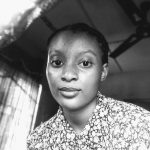
Dorcas Akintoye is a versatile writer with a passion for beauty, fashion, relationships, and culinary delight. With a keen eye for detail and a passion for storytelling, she adds a touch of elegance to every topic she explores. She is a writer at THEWILL DOWNTOWN.





